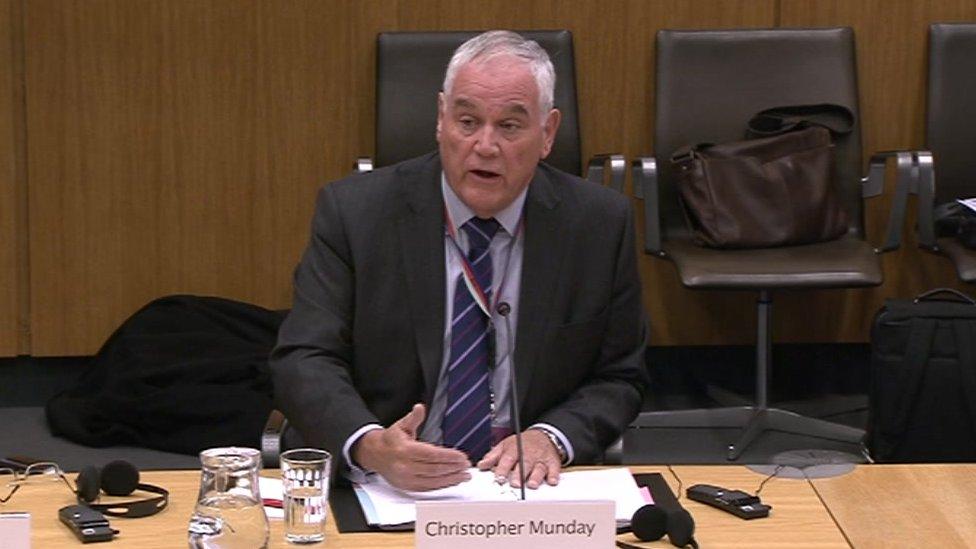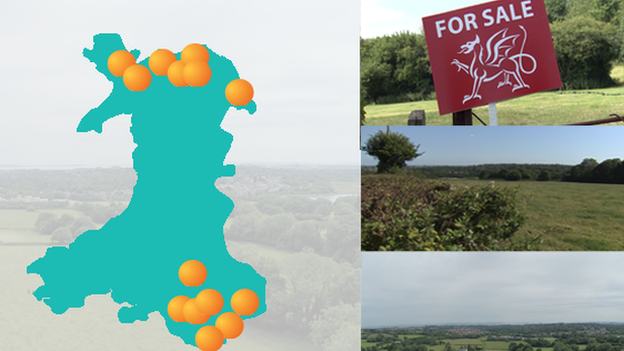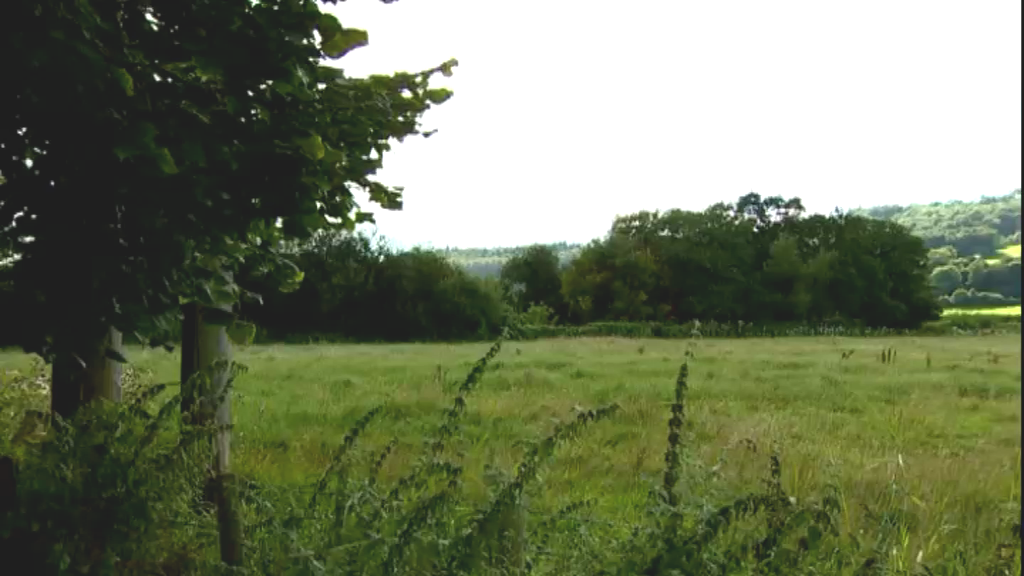RIFW £21m land sale 'error' admitted by civil servant
- Published

Chris Munday was selling publicly-owned land to raise funds for re-investment elsewhere
The civil servant behind the creation of a fund that sold millions of pounds worth of publicly-owned land has admitted it was wrong to include the most valuable site in the deal.
Chris Munday said, with hindsight, 120 acres (50 hectares) of farm on the edge of Cardiff should have been omitted.
The Regeneration Investment Fund for Wales (RIFW) is being investigated by the assembly public accounts committee.
Auditors found taxpayers may have lost £15m on the sale of 15 sites.
RIFW, a wholly-owned subsidiary of the Welsh government, sold 15 sites in one deal for £21m in March 2012 to a Guernsey-based company called South Wales Land Developments.
In June, auditors said they found flaws in the sale process, weaknesses in advice to the board, and potential conflicts of interest.
The District Valuer, in the Wales Audit Office report, valued them at £36m, if they had been sold separately.

The 15 sites sold in one deal included farmland and former industrial locations
The most valuable site in the village of Lisvane, near Cardiff, was sold for £15,000 an acre (£37,500 per hectare).
Large parts of that land could now be worth up to £2m an acre (£5m per hectare) if planning permission is agreed.
The site, earmarked for housing by Cardiff council, is currently at the centre of a planning appeal.
'Fire sale'
Mr Munday told the committee on Tuesday: "Hindsight is a great educator. With the benefit of hindsight we would not have included Lisvane."
He said there was a "time imperative" to get RIFW established within a specific time-frame to meet EU deadlines on funding.
Senior civil servant James Price says the nation faced a 'dire financial situation'
Another senior civil servant told AMs the background was one of officials considering a "fire sale" of all the Welsh government's assets in the face of recession.
Deputy permanent secretary James Price said: "That was seriously being considered at the time - put the whole lot up in one block - and discussions about the fact we might lose half of it being completely acceptable from a policy perspective, because there was such a need to get investment into the economy.
"That's not what happened here, but that must have been at the back of people's minds who were thinking of putting this land in."
- Published12 October 2015

- Published15 July 2015

- Published8 February 2013
- Published5 September 2012
